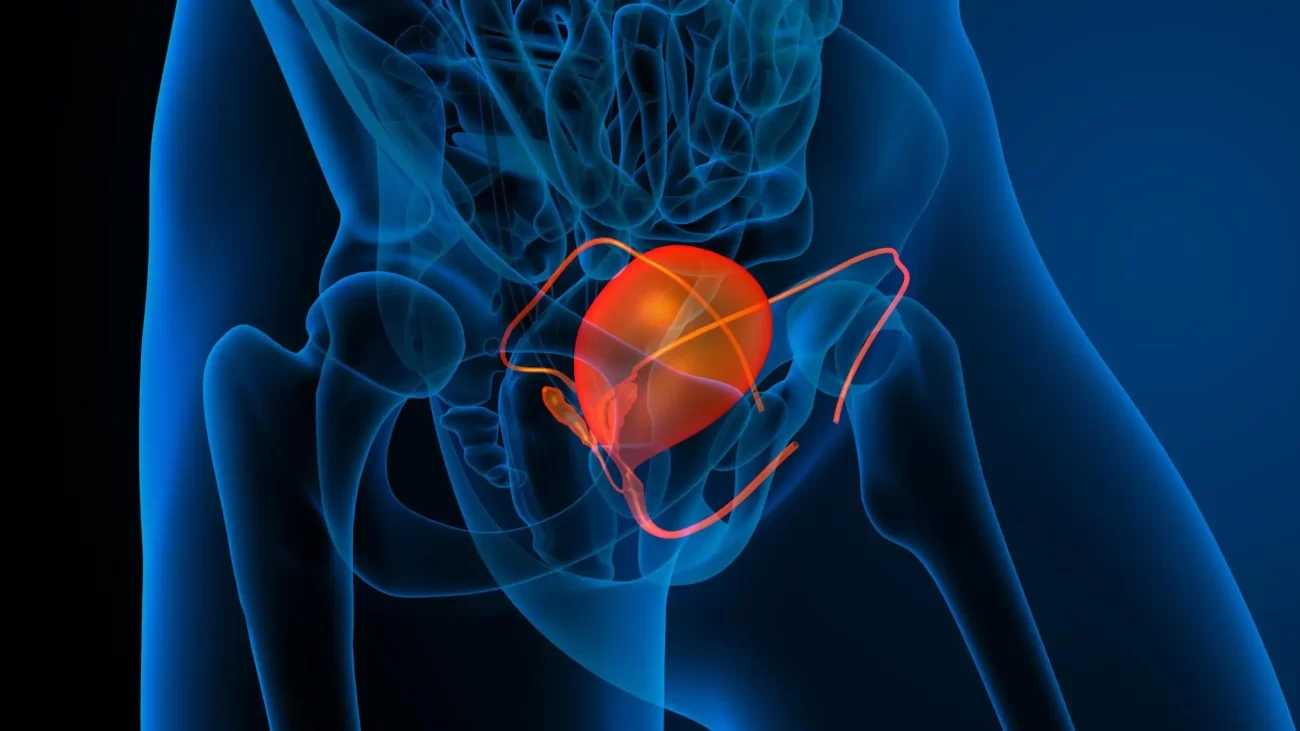Bladder Cancer: Symptoms, Diagnosis, and Treatment Methods

Bladder cancer is a type of cancer that occurs when the cells in the bladder grow uncontrollably. The bladder is an organ where urine accumulates before being expelled from the body. This disease typically starts in the cells lining the bladder and, if not detected early, can spread to deeper layers or nearby organs. In this article, we’ll provide detailed information about the symptoms, diagnosis, and treatment options for bladder cancer.
What is Bladder Cancer?
Bladder cancer most commonly develops in the cells lining the bladder’s inner surface (urothelial cells) and is referred to as urothelial carcinoma. In its early stages, bladder cancer is often confined to the bladder lining, but over time it can invade the muscle layer, surrounding tissues, lymph nodes, or even spread to other organs. While urothelial carcinoma is the most common type, squamous cell carcinoma and adenocarcinoma are less frequent types of bladder cancer.
Symptoms of Bladder Cancer
Bladder cancer may show symptoms early on, but these signs can sometimes be confused with other health problems. The most common symptoms of bladder cancer include:
- Blood in Urine (Hematuria): The most frequent and early sign of bladder cancer is visible blood in the urine, which may appear red or brown. In some cases, the blood can only be detected through laboratory tests (microscopic hematuria). Hematuria may stop and return intermittently.
- Pain or Burning Sensation During Urination (Dysuria): Patients may experience discomfort, pain, or a burning sensation while urinating.
- Frequent Urination: The need to urinate more often than usual, often with only a small amount of urine being passed.
- Urgent Urge to Urinate: A sudden and intense need to urinate may occur.
- Feeling of Incomplete Bladder Emptying: Even after urinating, there may be a sensation that the bladder isn’t fully emptied.
In more advanced stages, bladder cancer can also cause:
- Pain in the lower abdomen or back
- Unexplained weight loss
- Fatigue and weakness
- Bone pain (if the cancer has spread to other parts of the body)
If you experience one or more of these symptoms, it is important to consult a healthcare professional promptly.
How is Bladder Cancer Diagnosed?
The diagnosis of bladder cancer involves various tests and examinations. Doctors may use the following methods to detect bladder cancer:
- Urine Tests: A simple test to check for blood in the urine. Urine cytology, which involves examining the urine for cancer cells under a microscope, may also be performed.
- Cystoscopy: This is the most commonly used diagnostic method for bladder cancer. A thin tube with a camera (cystoscope) is inserted through the urethra into the bladder, allowing the doctor to directly inspect the bladder’s interior. If suspicious areas are detected, a biopsy can be taken.
- Biopsy: A tissue sample taken from the bladder during cystoscopy is examined under a microscope to confirm the diagnosis.
Imaging Tests:
- CT Scan: Used to determine the cancer’s stage and check if it has spread to other parts of the body.
- MRI: Provides detailed images to assess if the cancer has spread beyond the bladder.
Treatment Options for Bladder Cancer
The treatment of bladder cancer depends on the stage, spread, tumor size, and the patient’s overall health. Common treatment options include:
- Surgical Intervention:
- Transurethral Resection (TUR): A common procedure for early-stage bladder cancer. It involves removing cancerous tissues from the bladder using a cystoscope.
- Partial Cystectomy: If the cancer is confined to one part of the bladder, only that section is removed.
- Radical Cystectomy: For advanced bladder cancer, the entire bladder and some surrounding tissues are removed. In men, the prostate may also be removed, while in women, the uterus, ovaries, and part of the urethra may need to be taken out.
- Chemotherapy: Administered either before or after surgery to destroy cancer cells. Systemic chemotherapy targets cancer cells throughout the body, helping prevent the disease from spreading.
- Bacillus Calmette-Guérin (BCG) Therapy: An immunotherapy method used for early-stage bladder cancer. A bacterium called BCG is introduced into the bladder to stimulate the immune system to fight cancer.
- Radiation Therapy: Uses high-energy beams to shrink or destroy cancer cells. It is often preferred when surgery is not an option.
- Immunotherapy: Involves medications that enhance the immune system’s ability to fight cancer. This option is often used for advanced-stage bladder cancer.
Bladder cancer has a high chance of being treated successfully when detected early. Therefore, it is essential to seek medical attention promptly if you notice changes in your urinary habits or other symptoms of bladder cancer. Treatment may include surgery, chemotherapy, radiation, or immunotherapy depending on the stage of the cancer. Regular check-ups and early detection are crucial for successful treatment outcomes.
